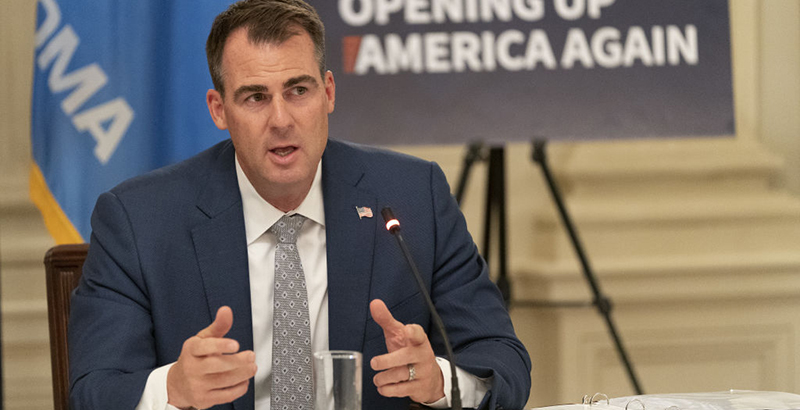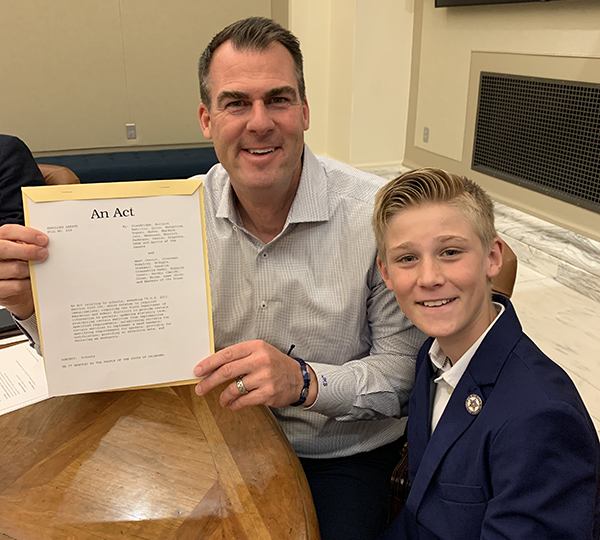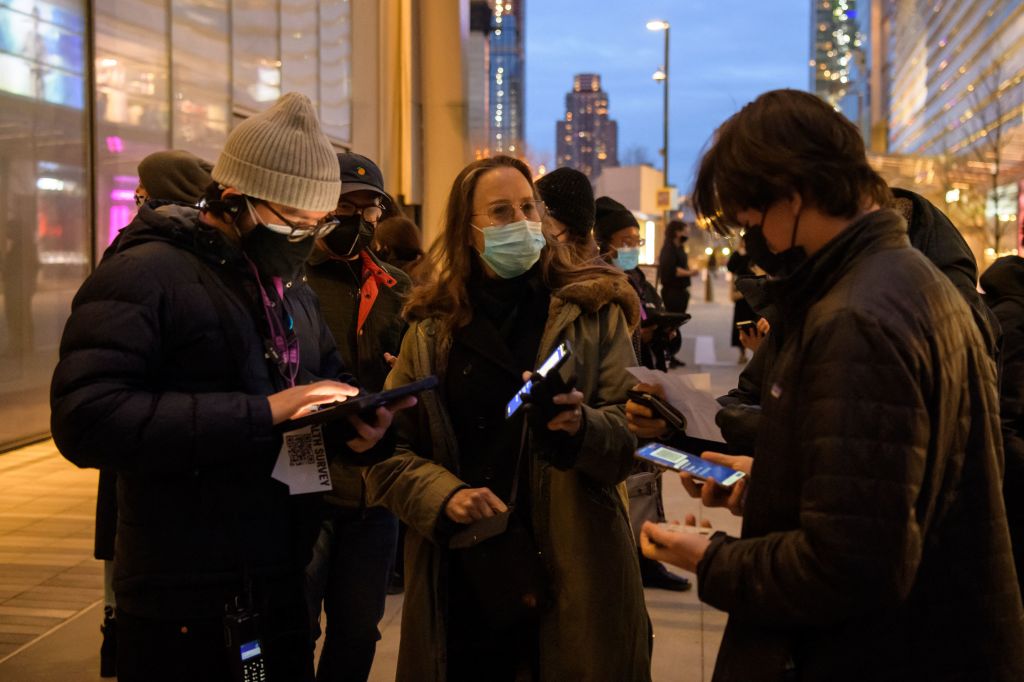Oklahoma Law Forbids K-12 Vaccine Requirements; Experts Call Move Political Symbolism, But Not Without Risk

Get essential education news and commentary delivered straight to your inbox. Sign up here for The 74’s daily newsletter.
Oklahoma on Friday became the first state to enact legislation banning K-12 vaccine requirements. Michigan and Pennsylvania lawmakers have advanced bills to do the same — marking the start of a trend vaccine policy experts say is largely symbolic, but could still hamper the campaign to conquer COVID-19.
Oklahoma’s prohibition on vaccine mandates covers not just K-12 schools, but colleges, universities and career and technical centers. While more than 400 higher education institutions across the country have announced an immunization requirement for the fall, Oklahoma is one out of only 15 states without a college or university on that list.
Unlike post-secondary institutions, K-12 school districts do not have the legal grounding to mandate vaccines. Even before Oklahoma Gov. Kevin Stitt signed the law, no public schools in his state — or any other, for that matter — were able to mandate COVID vaccines.
“The list of vaccines required for school is already set in the law. So you’d have to change the law anyway [before adding COVID vaccines],” UC Hastings law professor Dorit Reiss told The 74.
Top Oklahoma school districts confirmed that the recent bill will not change their plans.
“[It] does not impact our ongoing efforts to ensure the safety of our students and team members,” Tulsa Public Schools spokesperson Lauren Partain wrote in an email to The 74. Though the district is providing opportunities for eligible students and staff to receive vaccinations, she said, “we are not requiring students to receive the COVID-19 vaccine at this time.”
In Oklahoma City Public Schools, the state’s largest school system, media relations manager Crystal Raymond told The 74 that “COVID vaccine requirements have never been on the table for students or staff.”

Nationwide, the power to add shots to schools’ lists of required vaccinations, experts say, rests with state officials who will be unlikely to make any changes until vaccines receive full approval from the Food and Drug Administration, a clearance for which both Pfizer-BioNTech and Moderna have applied. The federal agency authorized youth aged 12 to 15 for shots based on their existing emergency use approval in mid-May.
The value of the Oklahoma law, which goes into effect July 1, or similar bills pending in Michigan and Pennsylvania may be more symbolic than functional, Reiss says. Once vaccines gain full approval from the FDA, the legislature could theoretically add coronavirus shots to the list of vaccines required for school entry, such as those that protect against measles, mumps and rubella — if the political will exists.

“[This bill] indicates that it’s unlikely that Oklahoma will pass a COVID-19 vaccine mandate anytime soon,” said Reiss.
Also included in the bill is a provision against “vaccine passports” and a ban on any school policies that require only non-vaccinated populations to wear face coverings.
The University of Oklahoma, which dropped its mandatory masking requirement for fully immunized students and staff in May, now asserts that face coverings for unvaccinated community members remain “strongly recommended,” but not required, spokesperson Kesha Keith told The 74.
Oklahoma joins a range of states including Georgia, Alabama, Arizona and Florida, which have already banned the use of vaccine passports. Elsewhere, however, vaccinated and unvaccinated individuals increasingly have access to two separate worlds.
New York City has rolled out its Excelsior Pass, the nation’s first government-issued vaccine passport, which allows residents to show proof of vaccination via an app and QR code — often as an entry requirement for bars, clubs and restaurants. Outside the U.S., a digital record of vaccination went live in seven European Union countries on Tuesday.

Such efforts reflect policymakers’ confidence in coronavirus vaccines, which scientists agree are safe and effective in preventing COVID-19 infection and spread. In Ohio, schools have seen a dramatic drop in staff cases as inoculations have become more widespread. Even Republican Alaska Gov. Mike Dunleavy touted his state’s high vaccination rates as a selling point to entice tourists this summer.
“Having one of the highest vaccination rates in the country, our people are safe and you will be, too,” Dunleavy said in the ad. (Alaska has since fallen to the middle of the pack in COVID-19 immunization.)
In Florida, the vaccine passport ban has put Gov. Ron DeSantis on a collision course with cruise lines, one of the state’s top industries. While cruise executives seek to comply with CDC guidelines by ensuring that nearly all staff and passengers are fully immunized, given the inherent vulnerability of packing thousands of individuals into tight quarters at sea, DeSantis has largely dismissed their concerns.
“In Florida, your personal choice regarding vaccinations will be protected, and no business or government entity will be able to deny you services based on your decision,” he said. In response, at least one major line has threatened to leave the state.
For Oklahoma state Sen. Rob Standridge, one of the authors of the law prohibiting vaccine requirements in school, the logic behind the legislation follows a similar throughline.
“To force kids … to be vaccinated against their parents’ wishes … I don’t think we should be doing that as a government,” he said in a press conference.
On the Senate floor, however, before the bill was passed, Democratic state Sen. J.J. Dossett made the case that the ban represented a government overreach — an argument frequently voiced by Republicans.
“Why in this body are we telling local entities what they should or shouldn’t be doing?” he asked fellow lawmakers.
When The 74 posed that question to Standridge, he did not offer a response.
These debates, says Reiss, of UC Hastings College of the Law, represent divisions that have emerged time and again throughout the pandemic.
“It shows us that the pandemic has been politicized,” she said, arguing that, ultimately, legislation discouraging vaccinations will extend the public health crisis.
“The virus needs hosts to survive. Less vaccines, more hosts, more room for the virus to stay around and keep hurting us.”
Get stories like these delivered straight to your inbox. Sign up for The 74 Newsletter

;)
